Towards a More Coherence Peacebuilding Policy Community Seminar
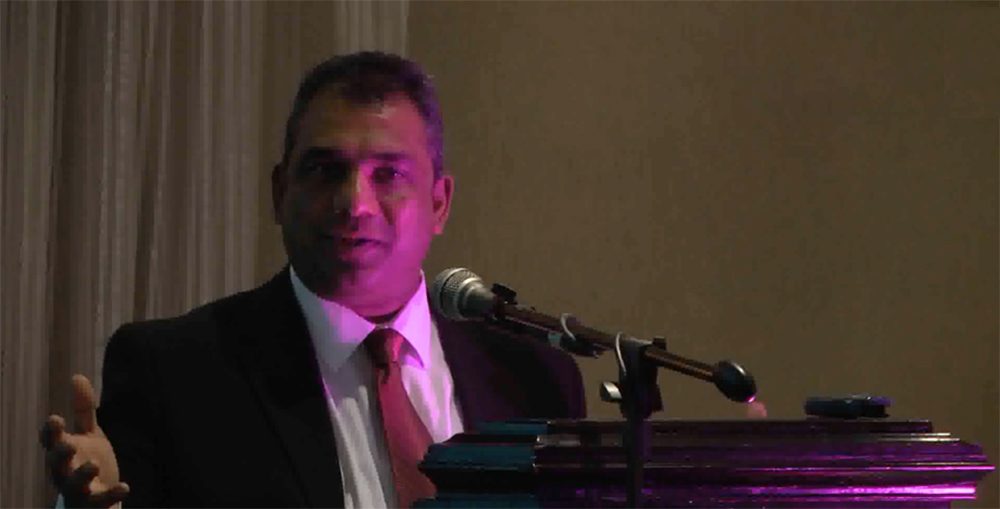
This is the opening session of the Peacebuilding Seminar: Towards a More Coherence Peacebuilding Policy Community held in Johannesburg, South Africa on 19-20 February 2014. The aim of this two day seminar is to create a space for convergence, where representatives from these different policy initiatives can enter into a conversation with each other, and […]
Session 1 – Peacebuilding Coherence Dilemma: Cooperation, Coexistence or Competition
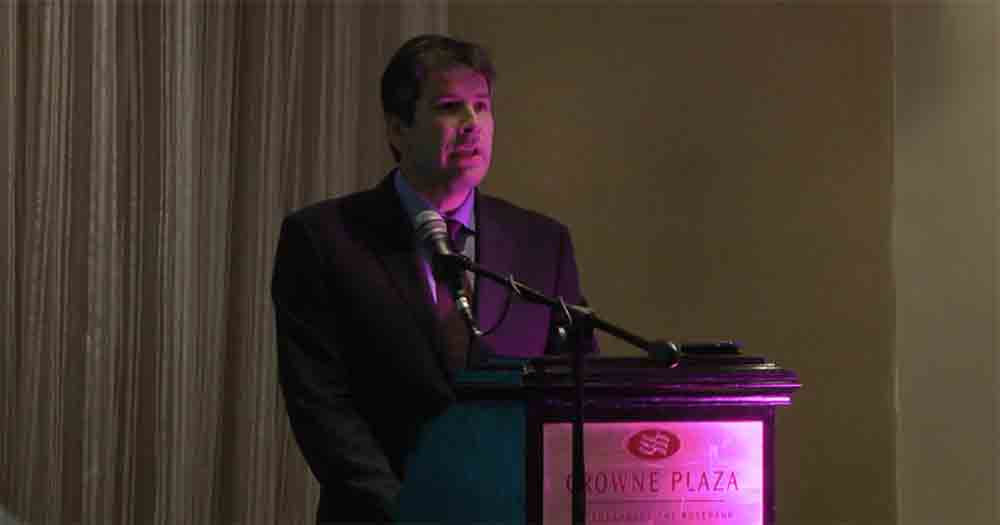
This session set the tone for the workshop with opening remarks by Dr. Cedric de Coning: Advisor to the Peacebuilding Unit, ACCORD, who unpacked what we meant by Coherence and Coordination and what this workshop aimed to achieve.
Session 2 – Opportunities to Overcome the Peacebuilding Coherence Dilemma: Dr. Henk-Jan Brinkman
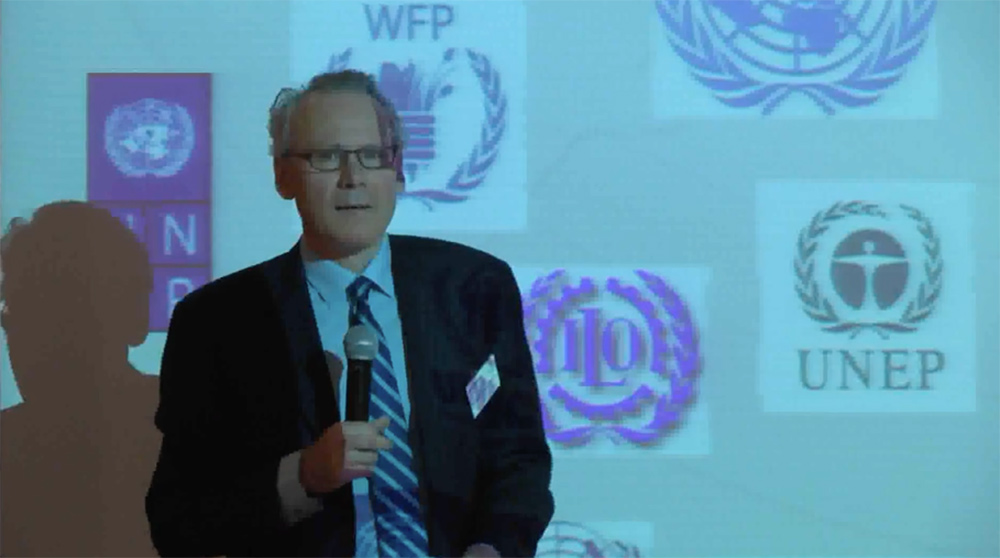
Session two looked at perspectives of coherence and coordination dilemmas within the international community. Dr. Henk-Jan Brinkman, Chief Policy Planning and Application Branch, UN Peacebuilding Support Office, reflected on the perspective of the UN Peacebuilding Planning Office about examples of how you the Dialogue has tried to overcome the challenges posed by coherence and coordination […]
Session 2 – Opportunities to Overcome the Peacebuilding Coherence Dilemma: Dr. Erin McCandless
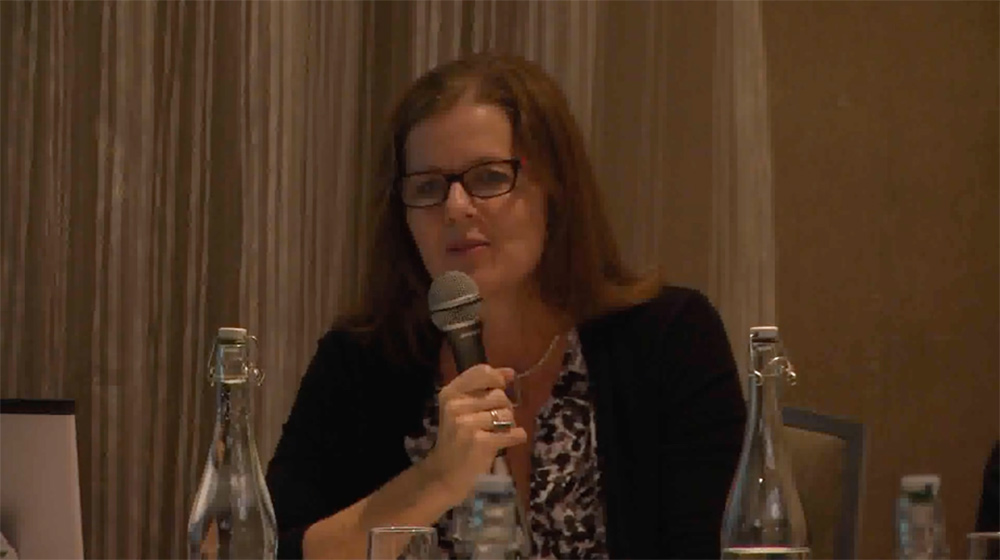
Session two looked at perspectives of coherence and coordination dilemmas within the international community. Dr. Erin McCandless Chief Editor, Journal of Peacebuilding and Development, was the discussant for the session providing to provide some critical analysis of the “ideas” presented as well as to highlighting some common themes. We would like you to provide new […]
Session 2 – Opportunities to Overcome the Peacebuilding Coherence Dilemma – Dr. Ozonnia Ojielo
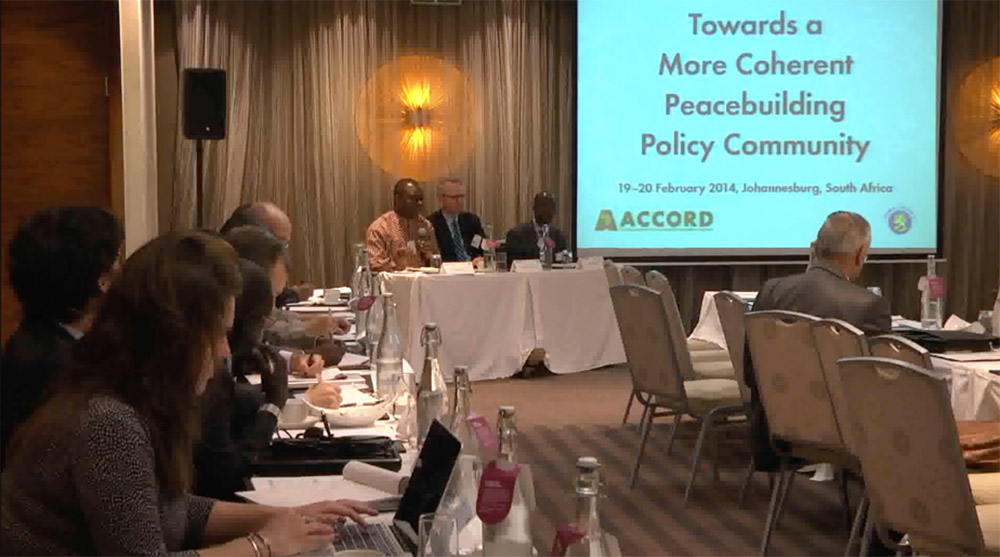
Session two looked at perspectives of coherence and coordination dilemmas within the international community. Dr. Ozonnia Ojielo Coordinator, UNDP Bureau for Crisis Prevention and Recovery reflected on the perspective of the work of the Bureau for Crisis Prevention and Recovery, about examples of how you have overcome the challenges posed by coherence and coordination within […]
Session 3 – Regional and local Approaches to Peacebuilding Coordination
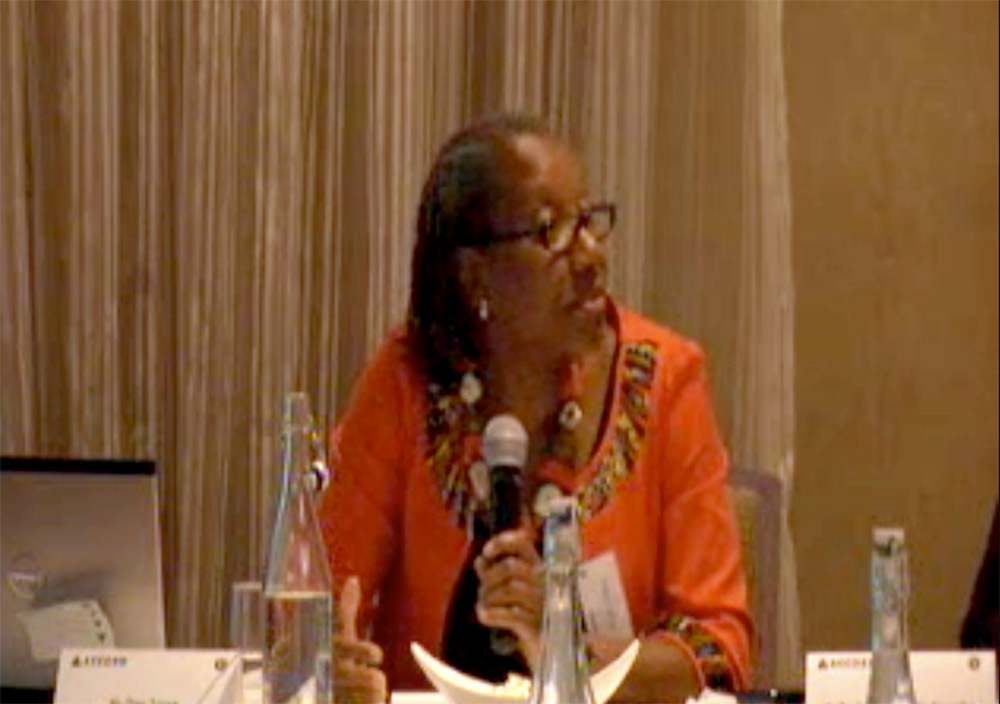
This session looked at regional aspects of coherence and coordination focusing on the UN, g7+ and perspectives from African civil society. Speakers: Dr. Samuel Doe: Policy Advisor & Team Leader, UNDP’s Bureau for Crisis Prevention and Recovery (BCPR) Dr. Helder de Costa: General Secretary of the g7+ Secetariat Dr. Tim Murithi: Head of Justice and […]
Session 4 – Reflections on Coherence and Cooperation from Academia
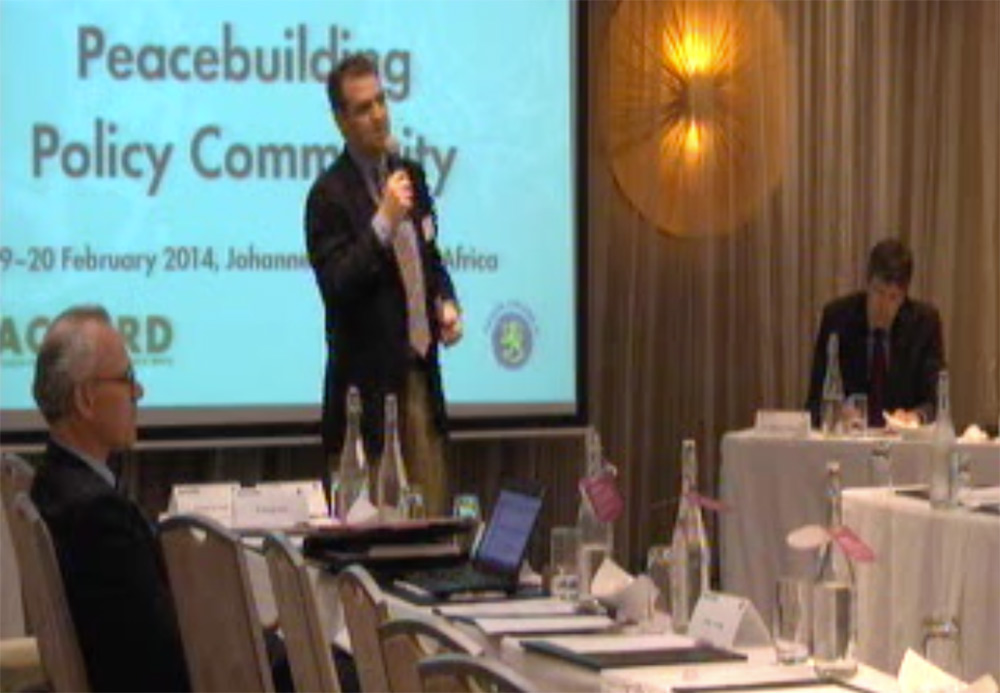
This session looked at the theory behind coherence and coordination and raised many interesting and challenging perspectives on if more coherence is even what we need in the international peacebuilding community. Speakers: Prof. Roland Paris: Director of the Centre for International Policy Studies (CIPS), University Research Chair in international Security and Governance, University of Ottawa […]
Session 5 – Peacebuilding Coherence Experiences at Country level
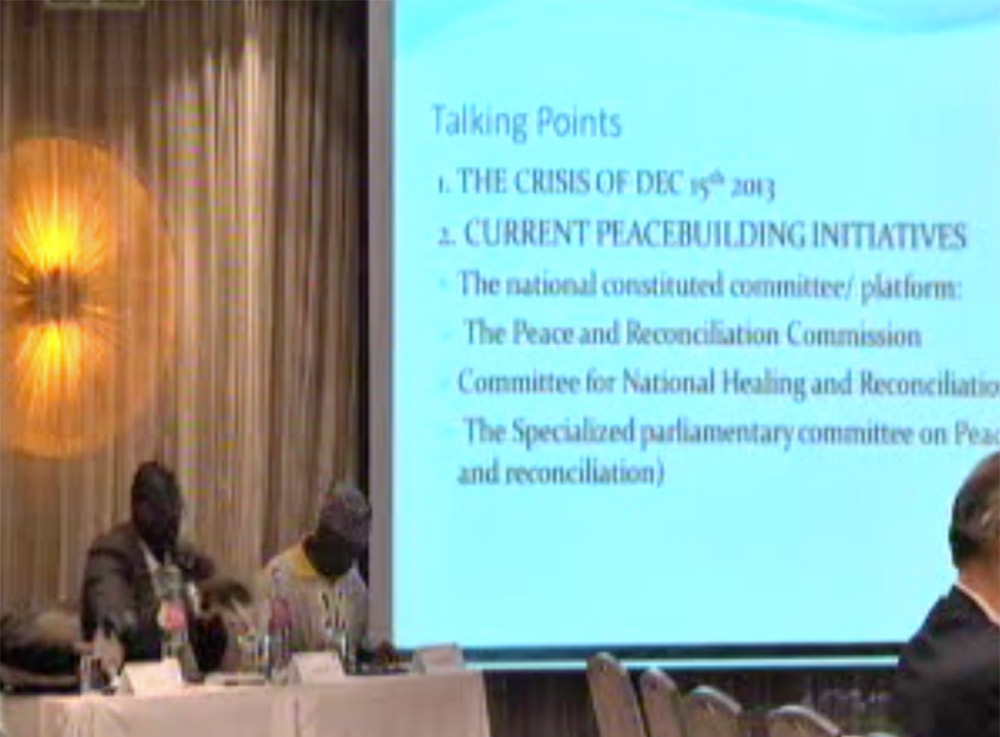
This session looked at Liberia and South Sudan – the focus countries of the ACCORD Peacebuilding Unit – and the perspectives of local approaches to peacebuilding being used in those countries. Speakers: Mr. Tobias Okori Atari: Director General of the South Sudan Peace Commission, South Sudan Dr. Sirisio Oromo: Centre for Peace and Development Studies, University of Juba, […]
Session 6 – Principles for Coherence and Coordination
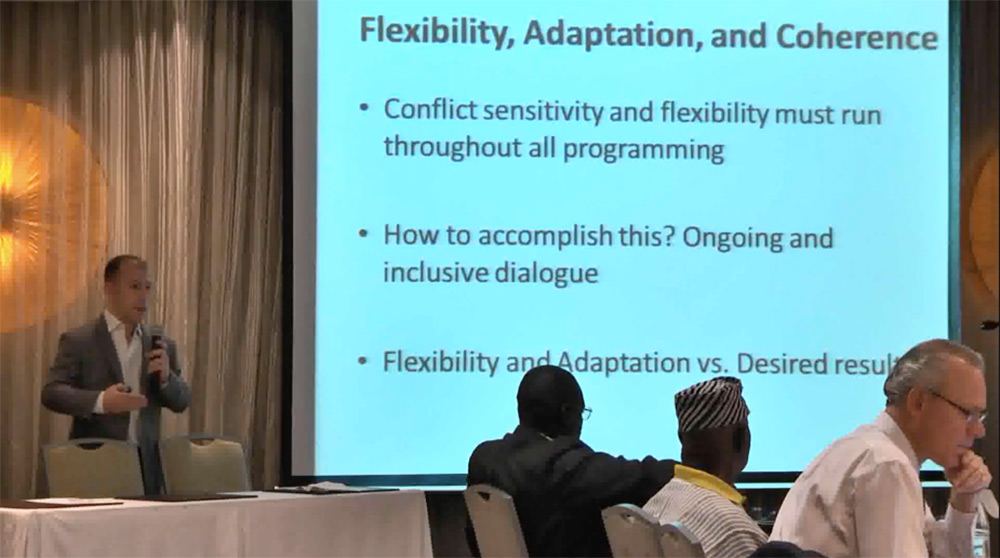
During session 6, the participants were divided into groups and asked to come up with five principles for better coherence within the peacebuilding environment. This is the feedback from the groups about the principles.
Session 7 – The way forward – Principles for Coherence: Ms. Sarah Cliffe
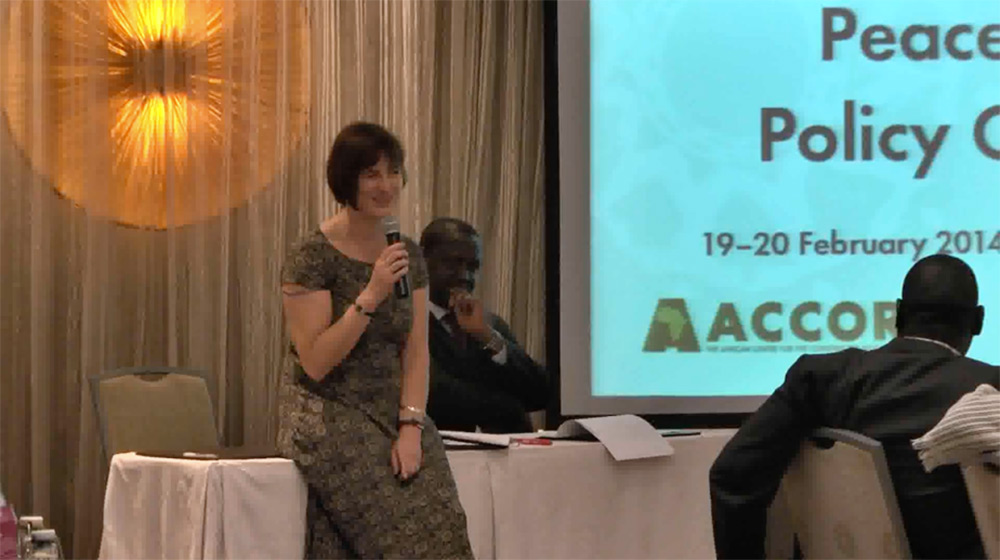
In this session, Ms. Sarah Cliffe, Special Adviser and Assistant Secretary-General for Civilian Capacities, reflected on the workshop as a whole and used her background with the World Bank and the Civilian Capacity initiative to look at ideas on how to improve coherence and coordination in the future; establish almost a set of principles for […]
